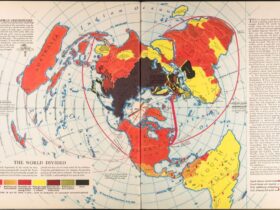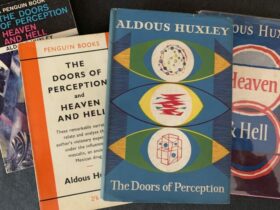There is a monster that has been with us from the very beginning, in all cultures, even before language. It’s a very helpful monster. You can attach almost anything to it. Love, sex, power, religion, politics, economics, manufacturing, trade, fashion, education, indoctrination… whatever you like, whatever you need. This monster is capable of serving all. Yet, it has a secret agenda. Everybody deep down inside knows this instinctively. We know it’s here, we like it, we sense some deep purpose of it, we feel it – but nobody knows the whole story.
The monster has a name. It’s not “Time”, but rather, time’s infant: Music.
Curious it seems, despite being deeply engraved to humanity’s history, with all the hype and economic power it commands throughout the world, music is still taken less seriously as a social subject. Perhaps this is because music has an almost uncontrollable ability to adapt, change, recreate and, more importantly, convince. It’s so slippery and abstract that we can hardly put a finger on it. It’s so deep that you need a theory or a belief system to hold onto, so as not to be rendered spellbound.
It’s easy to analyze and have opinions about the entertainment industry, poetry, lyrics, symbols, cultural codes; it’s even easier to trace the money and reach certain conclusions. But none of these approaches give us the entire picture. Like time itself, we have a general agreement that time exists. We use it, measure it, live by it. But nobody really knows why, how. Sure, there are numerous theories about it. We are free to choose to believe in any of them, but we do not know for sure.
We love and share our time with this monster, which leads us to the question: what will the new, multipolar world’s music be like after the end of Western global hegemony? Will it still be dominated by Western based “music and the recording industry”?
I believe the key concept here is “recording”. A product of the Second Industrial Revolution’s telecommunication achievements,its roots lay in late 1800s Europe and its success peaked in the US. Sound recording business had the most impact on music in the 20thcentury. With the digital revolution, the 21st century started with a serious change which some people call a “disruption” with pride.
Of course, all stories have two sides. By the 60s, the Western recording industry had been a major force in defining “success” and “fame”, strongly influencing the younger generations. And this definition had been a great export item, mostly very useful for cultural doctrination. Almost the whole world has bought into this. Today, it seems the music industry is likely to change forever. This means that “music” itself, with all the tools of the trade, schematics for mass manipulation, codes for fame, money and all the morality it manifested, are prone to change. This might be bad news for Western music culture.
But on the other hand, the music monster is big. It’s bigger than the recording business and the Western approach and the practises related to musical subjects. This change may help the rest of the world’s music industries and custom to breath its own air. Who knows, maybe it might even be a good opportunity for world musicians to recover from the Western definiton of “fame”. Music has the power to adapt, change, recreate and convince: maybe this is because of its unrealized hidden nature. Nonetheless, it’s still a monster we don’t fully understand.
There is also potentially good news for Western music, if it manages to escape the trappings of the current industry. I believe everyone is pretty aware that the Western music production system has started to look like a snake eating its own tail. Less and less influential music is being produced. For a long time, by-products have been gaining importance. More people are listening to older productions. The so-called “World Music” scene has always looked like condescension, never properly portrayed the “real” world and mostly been chosen and used for political reasons.All these look like the end of an era, thus, the change might also be very beneficial for the “real” music scene in the West as well.
Every musician knows that there is more to feeling than knowledge when it comes to good music. Feelings are still uncharted territory. One might guess that music monster has a lot to offer in the very near future. In closing, I felt this quote by Frank Zappa well summarized my own conclusions:
“Information is not knowledge.
Knowledge is not wisdom.
Wisdom is not truth.
Truth is not beauty.
Beauty is not love.
Love is not music.
Music is the best.”
From the 1979 song “Packard Goose”by Frank Zappa

















Leave a Reply